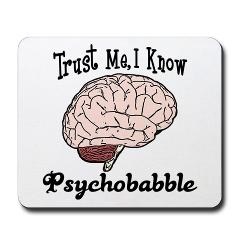
In previous posts, the checklist presented by Dr. Norcross focused on the advertising, the research claims, the unrealistic assertions and simplistic solutions offered by many resources. The eighth strategy warns: 8. Don’t be conned by PSYCHOBABBLE or slick writing
- The language used is tossed around to make the resource or the speaker sound “hip” or knowledgable about psychological realities of which they may have little training.Terms or statements like, “getting in touch with your feelings”, “unveiling the real you”, “sending off hostile vibes”, “needing high energy experiences”, “get with the program”, “accelerated learning”, “needing to experience an altered state.” The problem becomes the meaning of these statements…sounds interesting, but what does it really mean????
- This language is also seen as “consumer friendly”, simpler than real psychological terms, making the author closer and more accessable to the reader.
- The writing style may also cleverly pull you in with antecdotes and personal stories that encourage you to connect with the author. Because the author “speaks your language” (so to speak), you may be persuaded that the suggestions are both wonderful and valid. Often there is more “fluff” that real help in this type of material.
- Select self-help materials that give detailed recommendations for change, not just clever or inspirational stories.





